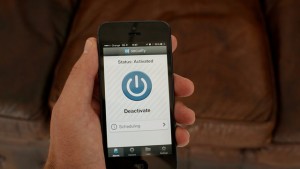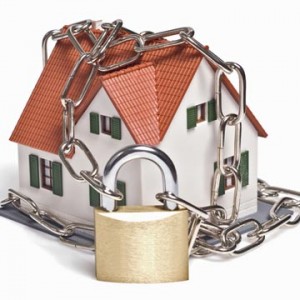 Last week on our blog, we wrote about how to protect your network’s connected devices, and the importance of good cybersecurity with the upcoming launch of 5G. This week we decided to take a step back and go into a bit more detail about 5G itself. So, what is 5G?
Last week on our blog, we wrote about how to protect your network’s connected devices, and the importance of good cybersecurity with the upcoming launch of 5G. This week we decided to take a step back and go into a bit more detail about 5G itself. So, what is 5G?
5G is the fifth generation (hence, 5-G) of wireless communications. Right now most cell phones communicate over a 4G network, such as LTE. 5G rollout has already started in certain areas, with nationwide coverage expected sometime next year.
Like other generational improvements, faster speeds are one of the main features of 5G networks, with anywhere from 500mbps-1.5gbps speeds available. But this generation is unique, in that it has a number of other benefits.
- lower latency
- lower power requirements
- increase in number of connected devices
When it launches, unless your device is equipped with 5G technology, it won’t be able to take advantage of these benefits. But most new devices launched after the 5G rollout will come 5G-capable.
So why does this matter? These improvements in communication speed and reliability are able to power a number of cutting edge technologies that will be used more and more frequently in the near future, such as virtual reality, driverless cars, remote surgery, and more.
In terms of security specifically, 5G connectivity will allow more devices to communicate even faster over your home network – for example security cameras, motion detectors, smart home devices, and many more. By involving machine learning and AI, your smart home will be able to learn more about your behaviors in order to provide increased convenience and protection.
If you live in Central or Northern New Jersey and would like information on how 5G can help protect your home or business, please call 800-369-3962 or simply CLICK HERE.



 In the wake of home automation, smart home, or connected home technology you may have come across the term Z-Wave technology. What is it?
In the wake of home automation, smart home, or connected home technology you may have come across the term Z-Wave technology. What is it? 
 How do you judge the value of your home? Is it the market price? Is it the neighborhood where it’s located? Or maybe it’s the aesthetics. Actually it’s all of the above and then some. If you’re a homeowner one sure fire way to add value to your home is by installing a comprehensive home security system. A home security system offers a peace of mind to homeowners they can’t get anywhere else, but that’s not all.
How do you judge the value of your home? Is it the market price? Is it the neighborhood where it’s located? Or maybe it’s the aesthetics. Actually it’s all of the above and then some. If you’re a homeowner one sure fire way to add value to your home is by installing a comprehensive home security system. A home security system offers a peace of mind to homeowners they can’t get anywhere else, but that’s not all. The images above show the difference between a parking garage being monitored by a camera with no WDR or WDR turned off on the left, and on the right the same area monitored by a camera with WDR enabled. The difference is clear as day. Why do they differ so much? The camera with the WDR enabled has two internal Charge-Coupled Devices (CCD). The two devices, or sensors, scan an image at different speeds, one low and one high, the image processor then combines the separate images producing a clearer, more balanced picture with better contrast and lighting. This process happens quickly enough to produce a stream of clear recorded footage. There are many different manufacturers that produce these WDR cameras in the market today, and not all of them use the same type of sensor and image processing combinations. The best way to ensure you are getting the best camera for your specific application is to hire a licensed security systems integrator who is educated in which camera specifications will work best in variant conditions.
The images above show the difference between a parking garage being monitored by a camera with no WDR or WDR turned off on the left, and on the right the same area monitored by a camera with WDR enabled. The difference is clear as day. Why do they differ so much? The camera with the WDR enabled has two internal Charge-Coupled Devices (CCD). The two devices, or sensors, scan an image at different speeds, one low and one high, the image processor then combines the separate images producing a clearer, more balanced picture with better contrast and lighting. This process happens quickly enough to produce a stream of clear recorded footage. There are many different manufacturers that produce these WDR cameras in the market today, and not all of them use the same type of sensor and image processing combinations. The best way to ensure you are getting the best camera for your specific application is to hire a licensed security systems integrator who is educated in which camera specifications will work best in variant conditions.